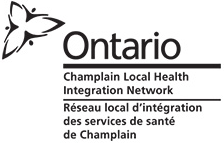
Definition of bedwetting
Because young children are not capable of staying dry through the night, a child is not considered to have problems with bedwetting until at least age 5.
Children are considered to have bedwetting if:
- A child aged 5-6 that has two or more bedwetting episodes per month
- A child aged 7 and above that has one or more bedwetting episodes per month
Bedwetting is very common in children who are going through toilet training.
How common is bedwetting?
- At age 5, 15-25% of children wet the bed
- At age 6, 15-30% still have at least one episode of bedwetting a month
- At age 12-18, 1-3% are still wetting their beds
- At age 18 and above, 1% of continue to wet the bed
What causes bedwetting?
There is no single cause. Many factors can contribute to bedwetting:
- Genetic factors: Most children with bedwetting have at least one parent who had the same problem as a child.
- Your child has a medical problem.
- Your child sleeps deeply and is not aware when his/her bladder is full.
- Your child’s bladder makes too much urine and/or is too small to hold the urine for a full night.
- In most cases, it is not felt that stress at home or school is a contributing factor, nor is bedwetting the result of the child being oppositional or defiant. If anything however, it is that bedwetting can lead to stress and emotional difficulties.
What can parents do about bedwetting
-
Remember that in most cases of bedwetting, it is because your child’s nervous system is simply not yet capable of being dry. It is not your child’s fault.
-
Blame, anger or shaming the child are not helpful, and can even make the problems worse. Parents should not compare the child to siblings. Parents should not allow other family members (such as siblings) tease the child.
-
Protect the bed by putting a plastic cover under the bed sheets to keep the mattress from getting wet.
-
Have your child use the toilet before bedtime.
-
Limit your child from having large amounts of fluids before bedtime.
-
Consider waking up your child 1-2 hours after going to sleep, in order to use the toilet.
-
Reward the child for being dry, but do not punish your child for being wet. Shame, guilt and unnecessary stress do not help your child stay dry.
-
Your child may be able to stay dry at night for many days or weeks, but from time to time, your child may wet the bed anyways. If this happens, simply put your child back into training pants until your child is a bit older, and then try again.
When to seek professional advice
Seek your child’s doctor if:
- Your child is aged 5 and up
- Bedwetting causes distress to you or your child
- Your child has actually had a long period of staying dry at night, and your child is suddenly wetting the bed
Treatments for Bedwetting
When you see your doctor, there are various things that your doctor may recommend such as:
- Bedwetting alarms: These are special alarms that you place in the child’s bed. When the alarm senses moisture (i.e. urine), the alarm wakes up the child (for example by vibrating), so that the child can stop urinating, and go to the washroom. Bedwetting alarms have perhaps the highest cure rate.
- Medications: Medications such as desmopressin (aka DDAVP) and imipramine can sometimes be helpful.
Summary
Bedwetting can be a distressing problem, but the good news, is that in most cases, it will eventually go away on its own. Nonetheless, seeing your physician for information about treatments and strategies can be helpful with managing bedwetting.
References
Thiedke C: Nocturnal Enuresis, American Family Physician, Apr 1, 2003, retrieved Feb 14, 2014 from http://www.aafp.org/afp/2003/0401/p1499.html.
License
Under a Creative Commons License. You are free to share, copy and distribute this work as in its entirety, with no alterations. This work may not be used for commercial purposes. Contact the Mental Health Information Committee if you would like to adapt these for your community!
Disclaimer
Information in this fact sheet may or may not apply to your child. Your health care provider is the best source of information about your child’s health.







